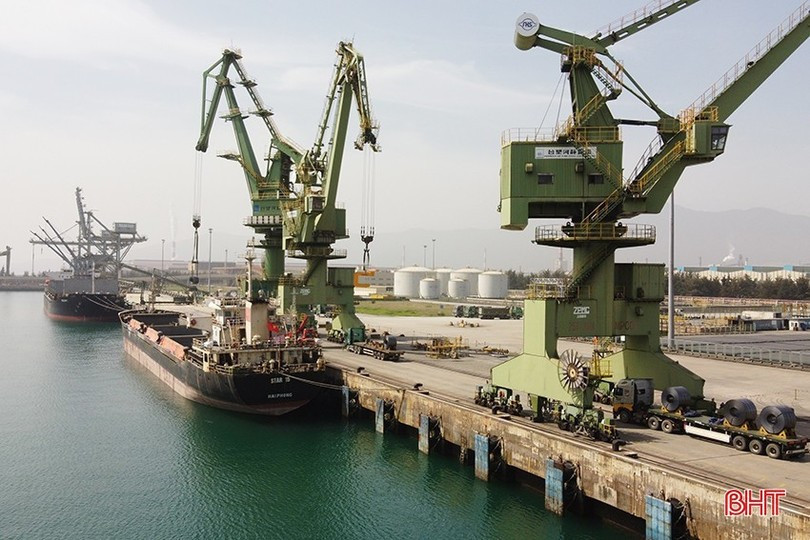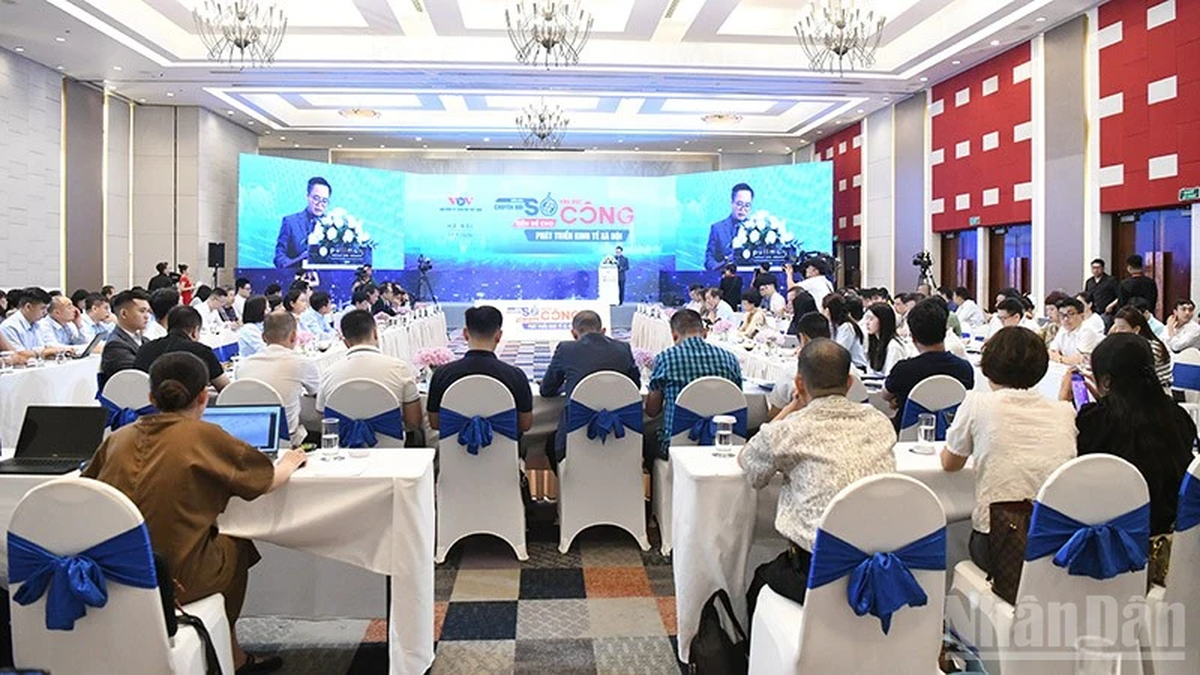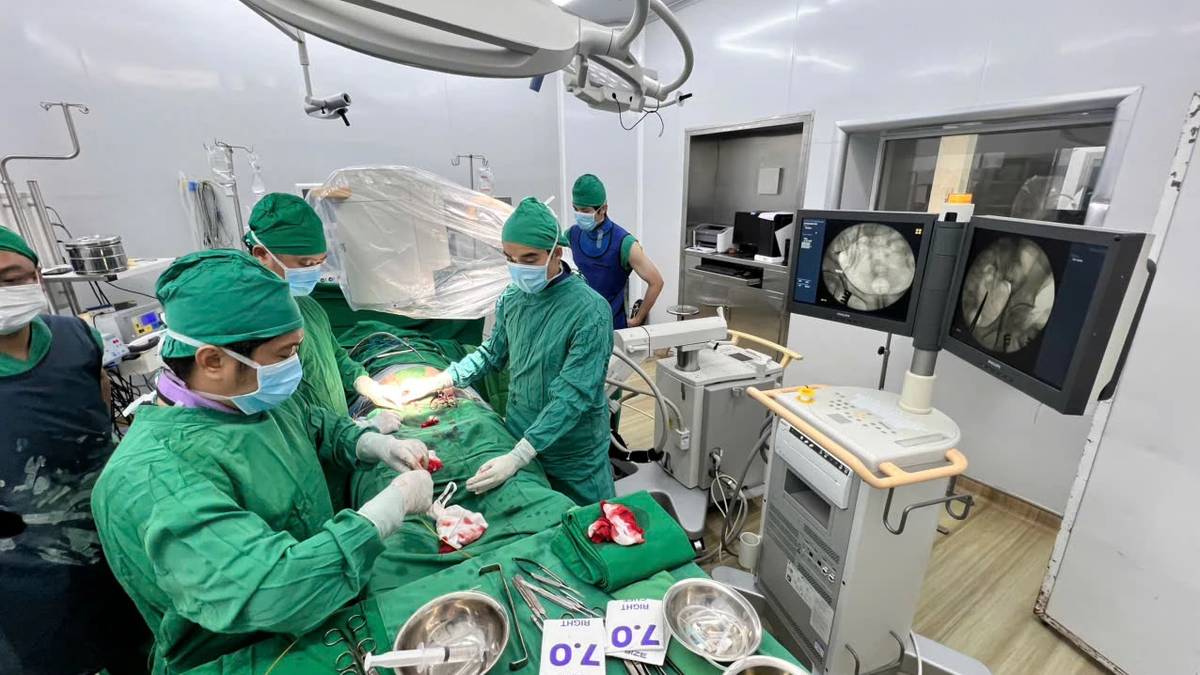On May 4, 2025, the Politburo issued Resolution No. 68-NQ/TW (Resolution 68) on private economic development. This is considered a historic turning point, because it not only has ambitious goals, but it is also a fundamental change in management thinking and national development strategy.
According to the resolution, by 2030, the private economic sector is expected to contribute 55-58% of GDP and create jobs for 84-85% of the workforce annually. The resolution also sets a target that by 2030 Vietnam will have 2 million enterprises, of which at least 20 have the potential to participate in the global value chain. Furthermore, by 2045, increasing the total number of enterprises nationwide to 3 million also demonstrates the determination to lay the foundation for a strong economy , ready to flexibly adapt to the global economy.

Notably, Resolution 68 does not stop at “giving opportunities”, but clearly shows a turning point in perception: from “management” to “creation”, from considering the private sector as a supplementary component to establishing its position as a key driving force of the economy. This is not only a policy orientation, but also a declaration of action to liberate and empower Vietnamese enterprises to fulfill their historic mission. For the first time, the private sector has been affirmed as the most important role and driving force of the national economy.
For many years, the private economic sector has been likened to a “vehicle” that silently pulls the economy forward. But now, after the promulgation of Resolution 68, that role has been re-evaluated in a more complete and realistic way: the private economic sector must be the “locomotive” for innovative growth and global integration.
Accordingly, a series of bottlenecks that have long constrained the capacity of private enterprises such as capital, land, tax, law, and human resources will be removed with a series of unprecedented preferential policies.
First of all, in terms of finance, small and medium enterprises are exempted from corporate income tax for 3 years, business license fees are eliminated, and notably, research and development costs are double tax deductible. The credit guarantee fund is expanded to 50 trillion VND, the first time the level of financial policy to support private enterprises is on a "huge" scale.

The Resolution also commits to simplifying administrative procedures with the goal of cutting 30% of unnecessary business investment conditions, helping businesses to be less "tired" in the "procedural matrix". Another notable point in Resolution 68 is that small and medium enterprises and business households (accounting for more than 97% of enterprises nationwide) are also supported in transforming their models, accessing finance, land and free legal services, creating a transparent and fair business ecosystem... Regarding human resources, labor training costs are tax deductible up to 200%, along with support programs to build a team of young entrepreneurs with integration capacity...
Resolution 68 is an unprecedented opportunity for private enterprises to expand, expand their scale, professionalize and integrate deeply into the global value chain. However, the opportunity only becomes a reality for enterprises that dare to change. In fact, although there have been remarkable developments in recent times, private enterprises still have internal problems: small scale, limited management capacity, lack of capital, and weak investment in research and development. Meanwhile, digital transformation, technology application and innovation are no longer options, but are conditions for survival for enterprises. Therefore, to compete, enterprises must change their mindset from short-term business to sustainable development. Furthermore, to grow, enterprises must overcome the "quick fix" mentality, build long-term strategies and engage in fields with high added value.

From the local perspective, Ha Tinh is emerging as a bright spot in the development of the private economy. With more than 6,800 operating enterprises and a registered capital of VND233,397 billion, of which nearly 60% of the province's GRDP comes from this area, it has shown the right steps in the province's orientation for private economy development in recent times.
To achieve these sweet fruits, Ha Tinh has promoted administrative reforms, improved the investment environment and supported enterprises to access land for production investment as quickly as possible. On the other hand, the province encourages enterprises to invest in areas with high growth potential such as renewable energy, smart logistics and high-tech agriculture... areas associated with Ha Tinh's development plan for the period 2021-2030, with a vision to 2050.
Not stopping at the level of encouragement, Resolution 68 affirms the State's strategic commitment to establishing the private economic sector - one of the important pillars to soon bring Vietnam into the ranks of developed countries.
When institutions go hand in hand, when the aspiration to rise becomes an endogenous driving force, the private economic sector can completely become a historical boost, opening a new growth cycle for Vietnam in general and Ha Tinh in particular: faster, further, stronger and more sustainable.
Source: https://baohatinh.vn/nghi-quyet-68-dot-pha-tu-duy-mo-khoa-tiem-luc-post288066.html





































































































Comment (0)